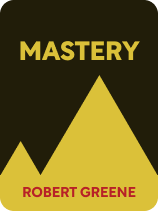

This article is an excerpt from the Shortform book guide to "Mastery" by Robert Greene. Shortform has the world's best summaries and analyses of books you should be reading.
Like this article? Sign up for a free trial here .
Do you want to enrich your growth? Have you considered finding a mentor?
While self-directed learning can take you far, Robert Greene asserts that finding a mentor will accelerate and enrich your learning. He identifies three benefits of having a mentor, explains how you should go about finding one, and discusses when it’s time to move on from that relationship.
Keep reading for more on mentorship.
Benefits of Having a Mentor
There are three benefits of having a mentor, according to Greene:
- Benefit #1: Inheritance of knowledge, experience, and spirit. A mentor passes on to you her years of experience and creative development. You’ll also receive the accumulation of wisdom that she gained from her mentor.
- Benefit #2: Direct guidance. A one-on-one relationship allows a mentor to tailor her instruction to your needs. She can teach with nuance and precision, transmitting her technical knowledge and the spirit of her craft in a way that books or large classes can’t.
- Benefit #3: Enriched learning. Greene explains that the mentor-mentee relationship creates an emotional connection that enriches the learning process. When you (the mentee) feel emotionally invested, you’ll learn more deeply—and when your mentor feels emotionally invested, she’ll teach more passionately.
Attract a mentor by appealing to her self-interest: According to Greene, mentors are often busy and won’t mentor just anyone. Demonstrate that you’ll do unglamorous work—such as organizational and administrative tasks—and that you have discipline and drive.
| Signs You Might Need a Different Mentor Mentorship can be powerful, but not all mentorship is beneficial. The Harvard Business Review describes five signs that might indicate bad advice from a mentor: Bias toward his preferences—In other words, he may be biased toward shaping you to be like him and encourage choices similar to his, rather than tailoring advice to you. Self-interest—Consciously or not, a mentor might encourage choices that benefit him, such as remaining in a position over which he has influence. Incompatible risk tolerance—If you and your mentor have a different appetite for risk, he might encourage or discourage choices conversely to your own opinions. Mismatched expertise—You might end up with a mentor who has little knowledge about a path you want to take, and he may struggle to help you reach your goals. Inattentiveness—Because the mentor has more power, he might not take the time to get to know you well. Because of this, his advice might not fit you as well as it could. None of this is a reason to avoid mentorship altogether. Instead, remind yourself that a mentor’s word is not infallible. Mentors can give bad advice or make mistakes, so always think for yourself as well as going to a mentor for help. |
Once you’ve learned enough, step out of your mentor’s shadow. Stay long enough to absorb her wisdom, spirit, and expertise, but do not remain so long that you grow comfortable or complacent. Some mentors will happily support your growth, while others may resent your departure. In either case, reflect on what you’ve learned and set off in your own direction.
(Shortform note: The Harvard Business Review also recommends ending a mentor-mentee relationship once it’s run its course. If you’ve learned all you can and/or the relationship no longer has good rapport, consider moving on. To do so, reflect on what you’ve learned and where you’ll go next, then express your gratitude to your mentor and make a clean break.)

———End of Preview———
Like what you just read? Read the rest of the world's best book summary and analysis of Robert Greene's "Mastery" at Shortform .
Here's what you'll find in our full Mastery summary :
- The clear path anyone can follow to achieve mastery
- An explanation of the three stages of mastery
- How learned conventions and familiar ways of thinking reduce creativity





